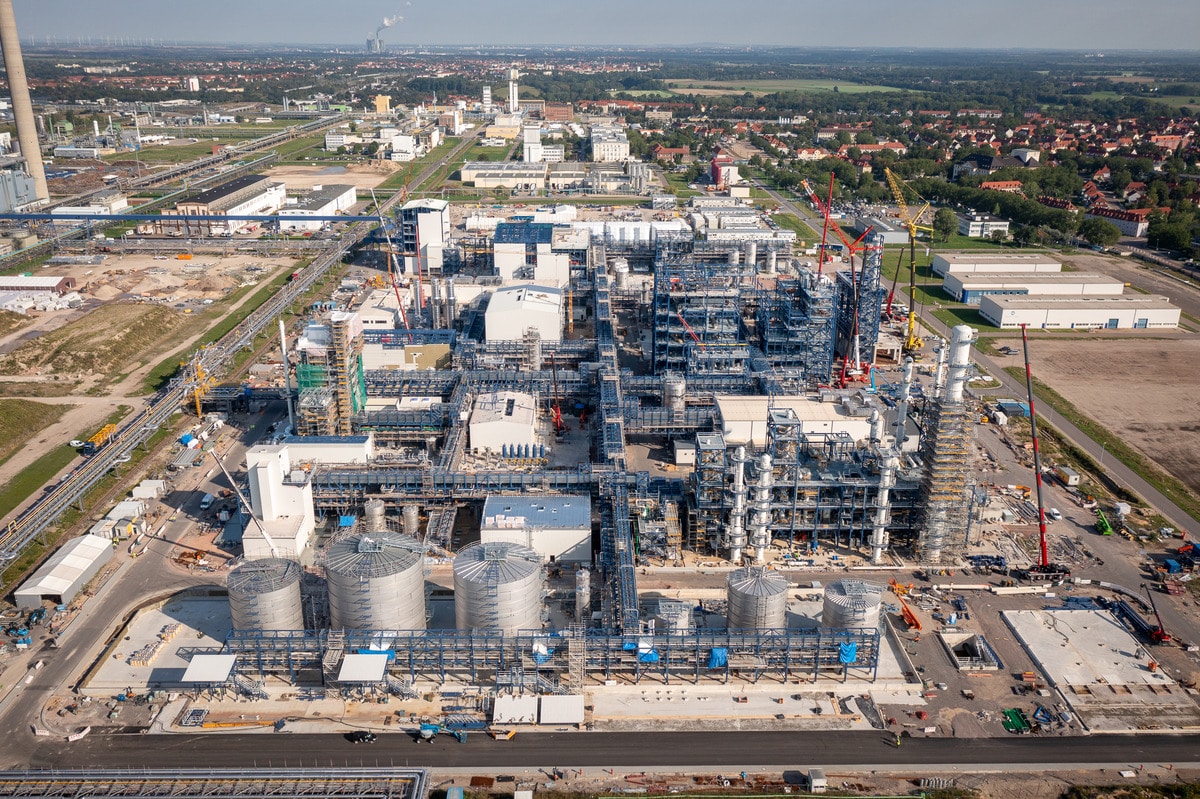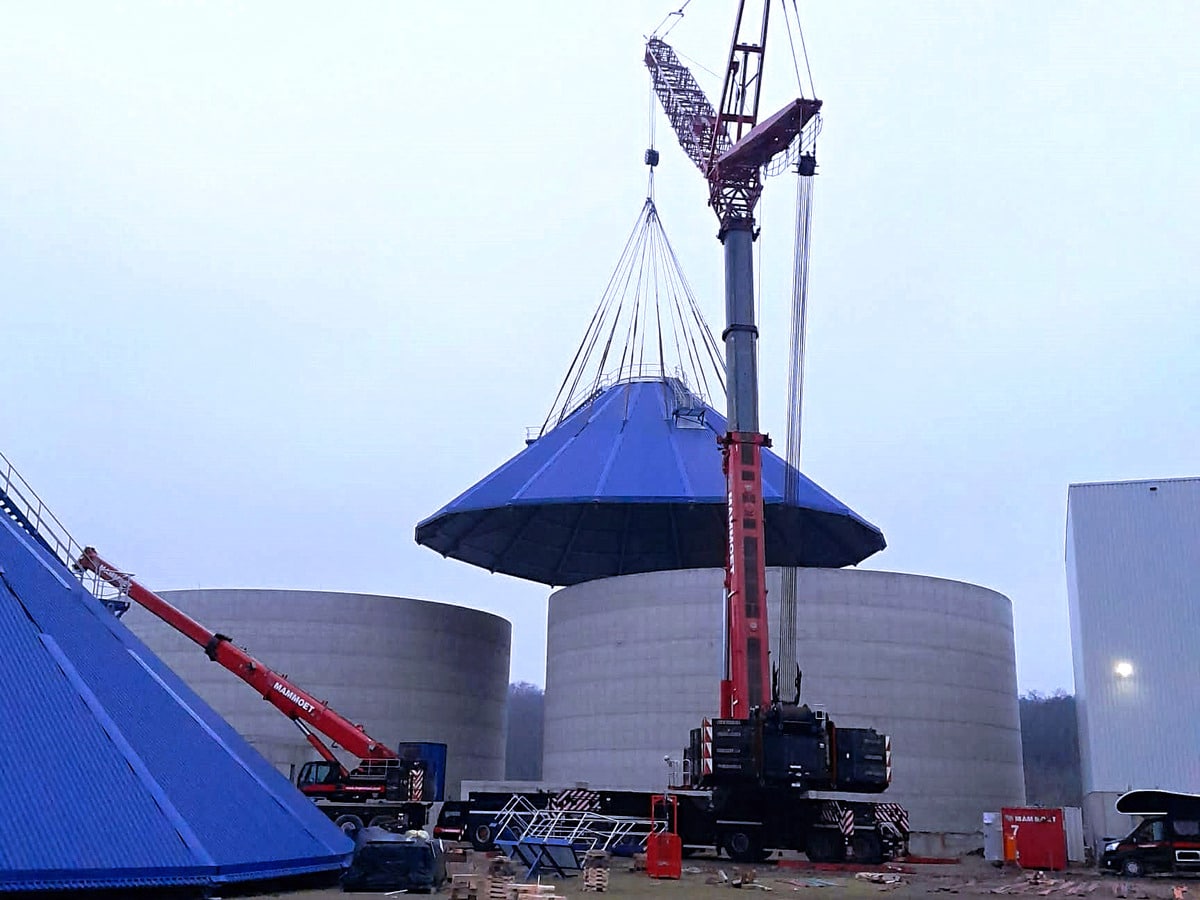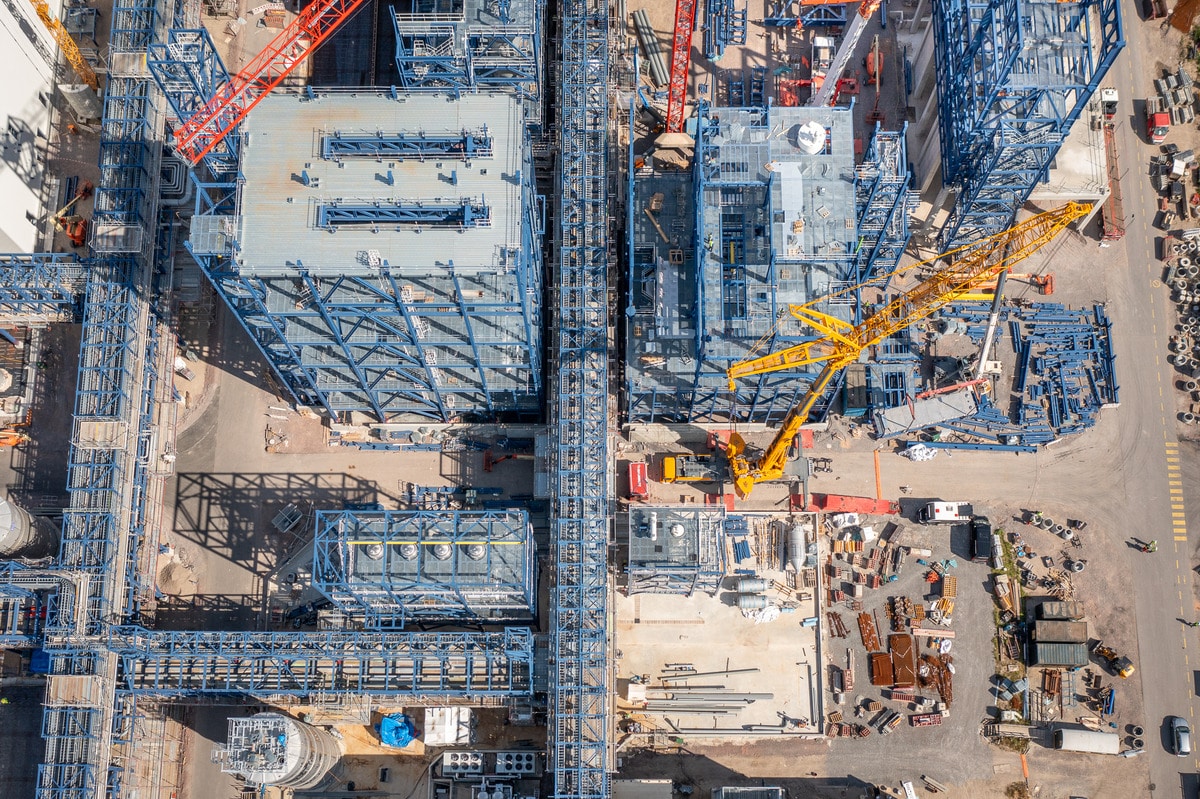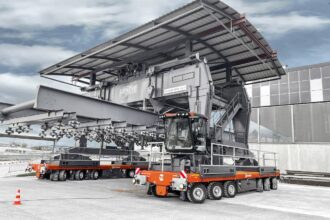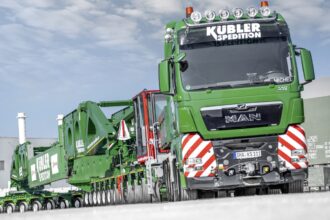UPM Biochemicals Paves the Way with Mammoet
WITH THE HELP OF MAMMOET, UPM BIOCHEMICALS IS BUILDING ITS FIRST STATE-OF-THE-ART BIOREFINERY TO PRODUCE WOOD-BASED BIOCHEMICALS IN LEUNA, GERMANY.
In a sustainable future, recyclable products will be made from biochemicals, replacing fossil chemicals. To make this vision a reality, UPM Biochemicals is building its first state-of-the-art biorefinery to produce wood-based biochemicals in Leuna, Germany.
Mammoet has supported this unique construction project from the very beginning as a general contractor for most of its transport, lifting and installation scopes. This has helped to optimize the critical path of the project and increase the efficiency of its construction.
With its proven know-how in the petrochemical industry – where scopes are often similar – Mammoet’s engineers were able to provide precise and efficient heavy-duty solutions for all requirements during the construction of the biorefinery.
Moving large and heavy components such as columns, evaporators, reactors, tanks, and chromators was planned by using Mammoet’s 3D engineering tool; Move 3D. This allowed the team to perform a lot of engineering in advance, overcoming many obstacles before even setting foot on site.
Among other tasks, Mammoet installed ten columns, delivered 20 tanks, and created a special rigging scheme for lifting silo roofs.
Mammoet engineered the installation concept for ten columns weighing 5t to 170t using its large crane technology. To avoid swinging over stored components, the columns were stored in installation order on a narrow pre-assembly area.
As construction progressed, the huge construction site became more and more confined, so all work had to be carefully planned and coordinated with the other trades on site. For example, the main boom of the crawler crane had to be shortened and the dredging mats repositioned before the largest column, weighing 170t and measuring 65m, could be erected in a tightening area and safely moved to the installation site.
A transport study was carried out to analyze the optimum transport route for 20 GPI tanks, each weighing 21t and with a height of 23m. Due to statics and the production sequence, the tanks could not be transported lying down, but only upright in a vertical position with a transport width of 7m. Since the center of gravity of the tanks was at a height of approx. 12m, tipping stability had to be ensured.
The tanks were pre-assembled using a crawler crane, then loaded onto each of two parallel coupled SPMT axle lines with an auxiliary structure and weighted down with 40t of additional ballast. With only a few centimeters of lateral clearance, the tanks were safely transported to the installation site and lifted onto their foundations.
Lifting two silo roofs, each 30m in diameter and weighing 58t, posed a risk of material deformation. A special rigging scheme with 18 anchor points and an angle of 70 degrees allowed an even load distribution. An almost complete absence of wind was required for the lifting operations.
Once the first roof was safely lowered onto the silo, the rigging was removed, and the second roof was lifted in the same way. Between the two lifts, the mobile crane was moved within the specified schedule.
When the installation sequence of the columns changed, Mammoet’s team was flexible enough to adapt the installation concept and perform necessary additional lifting work within the specified schedule.
Thanks to the company’s own crane and transport fleet with various large cranes and special equipment, its installation team, and its proximity to the construction site, the team was always able to react quickly and flexibly to changes and make the best use of even tight time windows to stay on schedule.
All key components were installed in place, and construction efforts continue on site. Once operational, the UPM Leuna’s biorefinery will mark the beginning of a new, more sustainable era for the entire chemical industry.
Jonas Bartzschke, Branch Manager at Mammoet in Leuna, Germany summarizes the project: “We not only successfully contributed to the construction of the biorefinery with our crane, transport and installation solutions. We were also able to use our experience to help manage the complexity, optimize the critical path and increase the efficiency of the construction. Above all, we are proud to be part of this groundbreaking project that will pave the way for a more sustainable chemical industry.”

